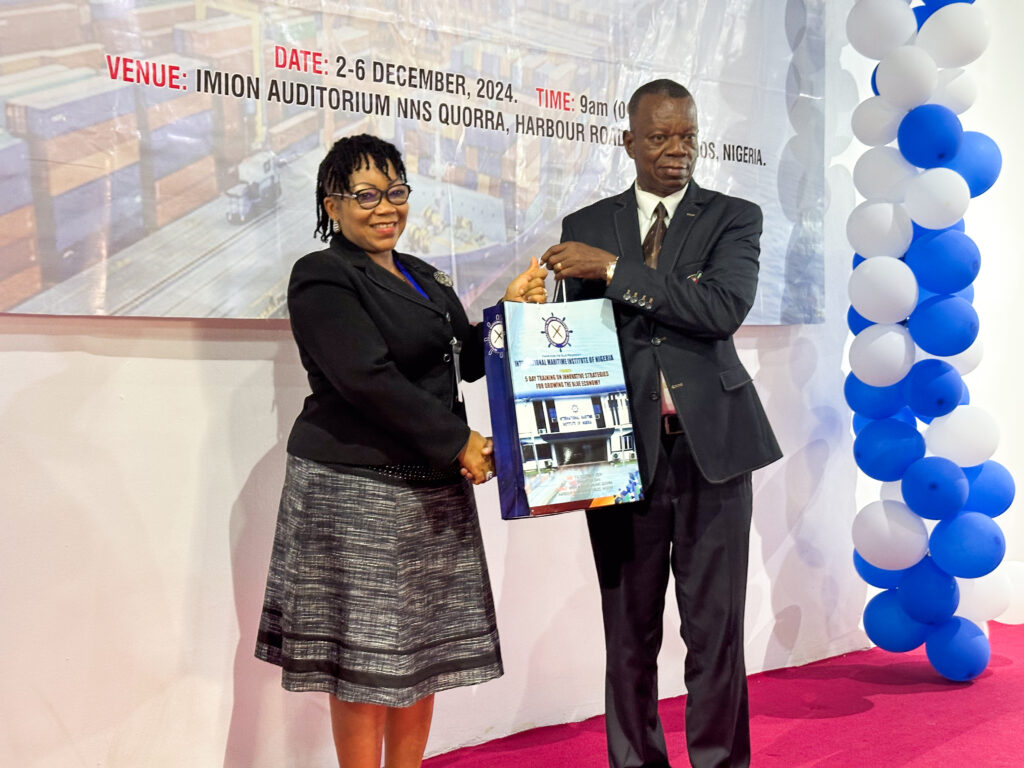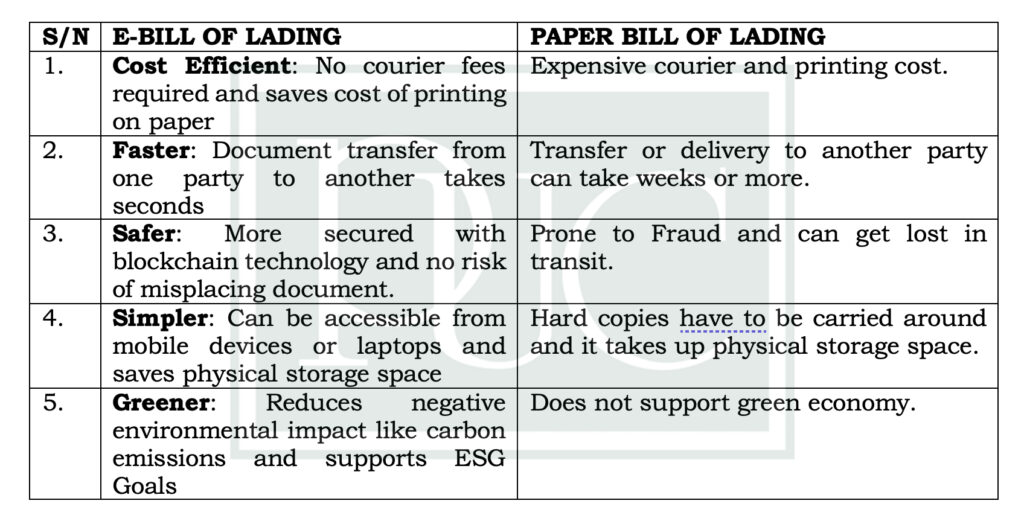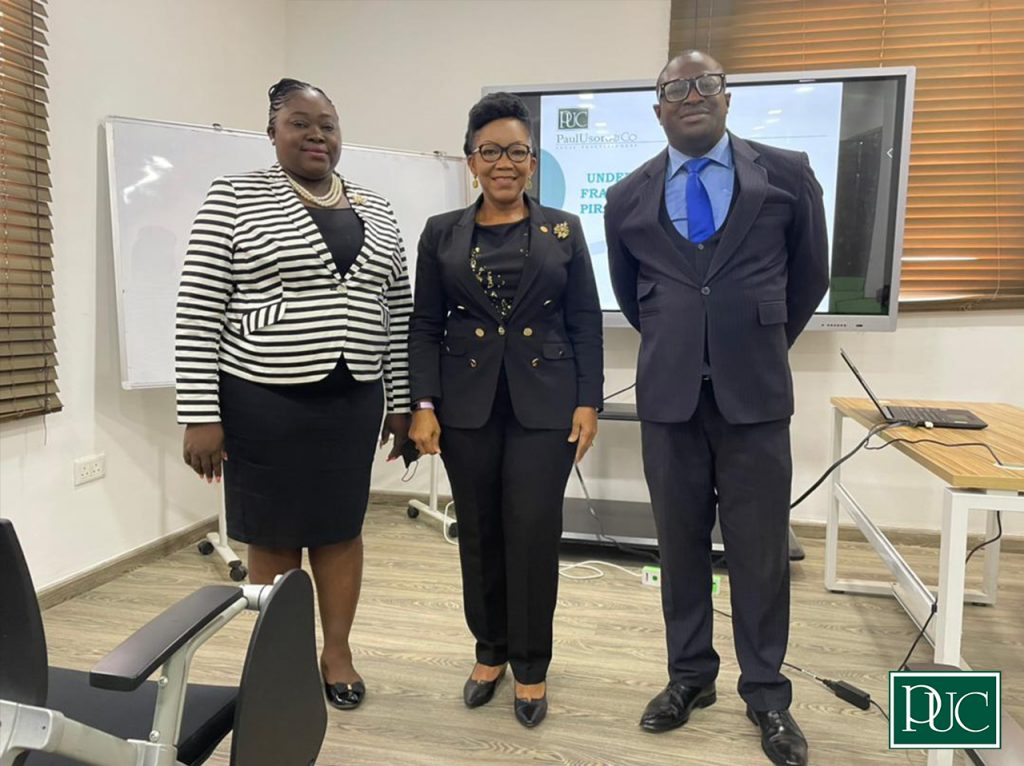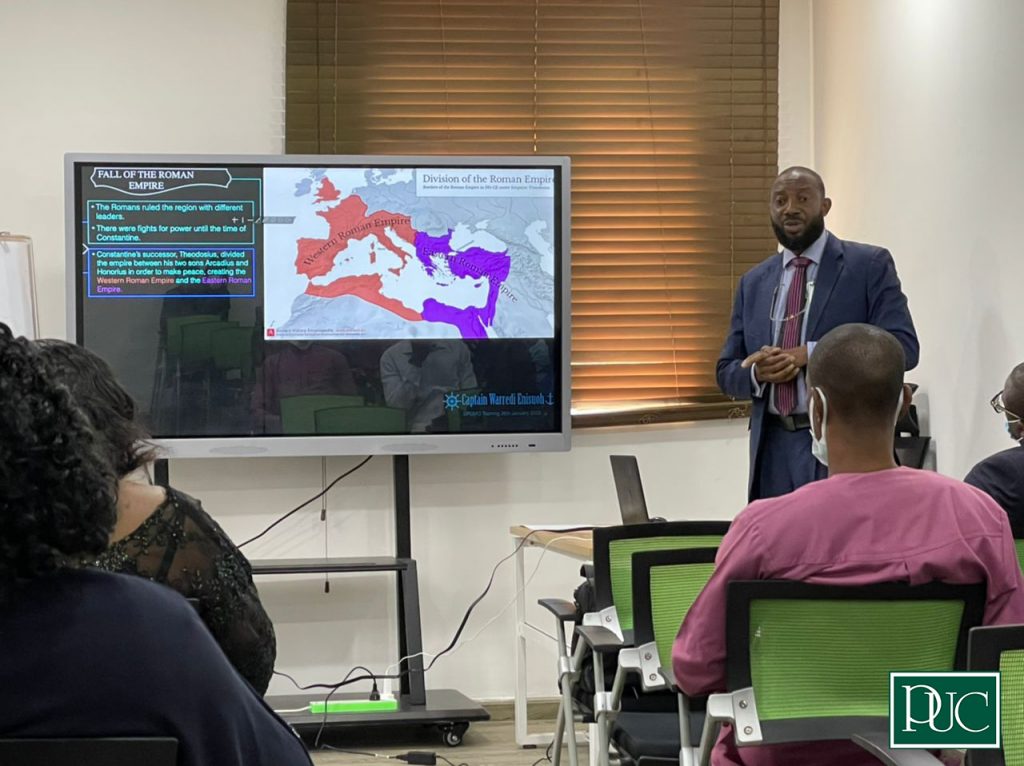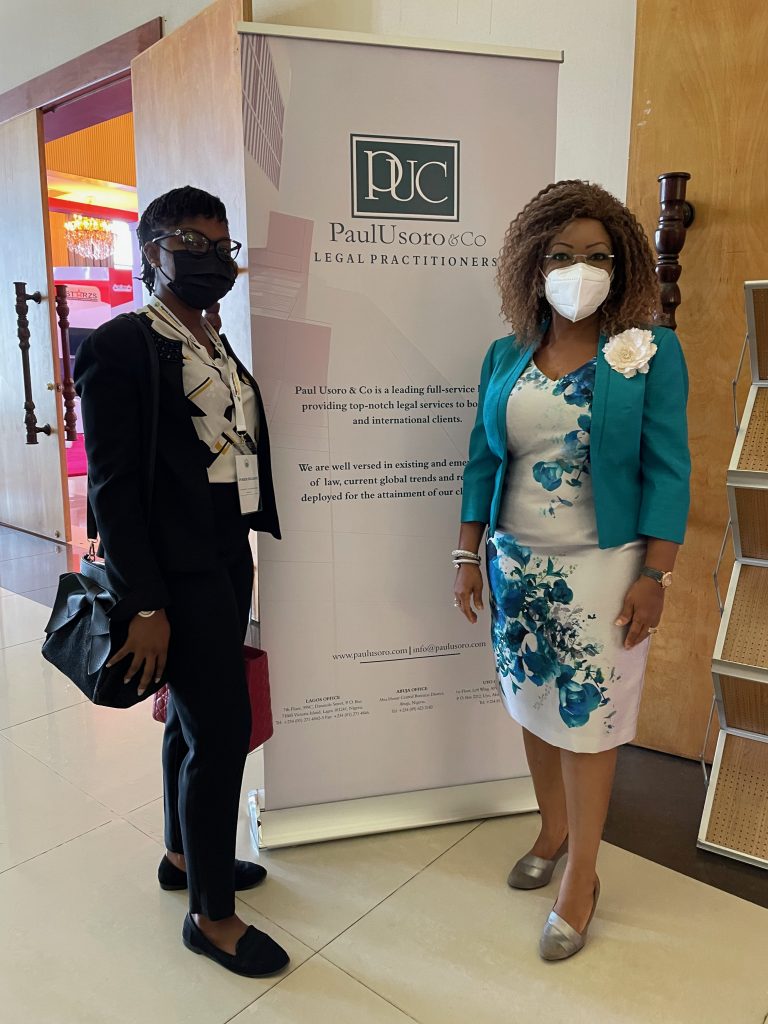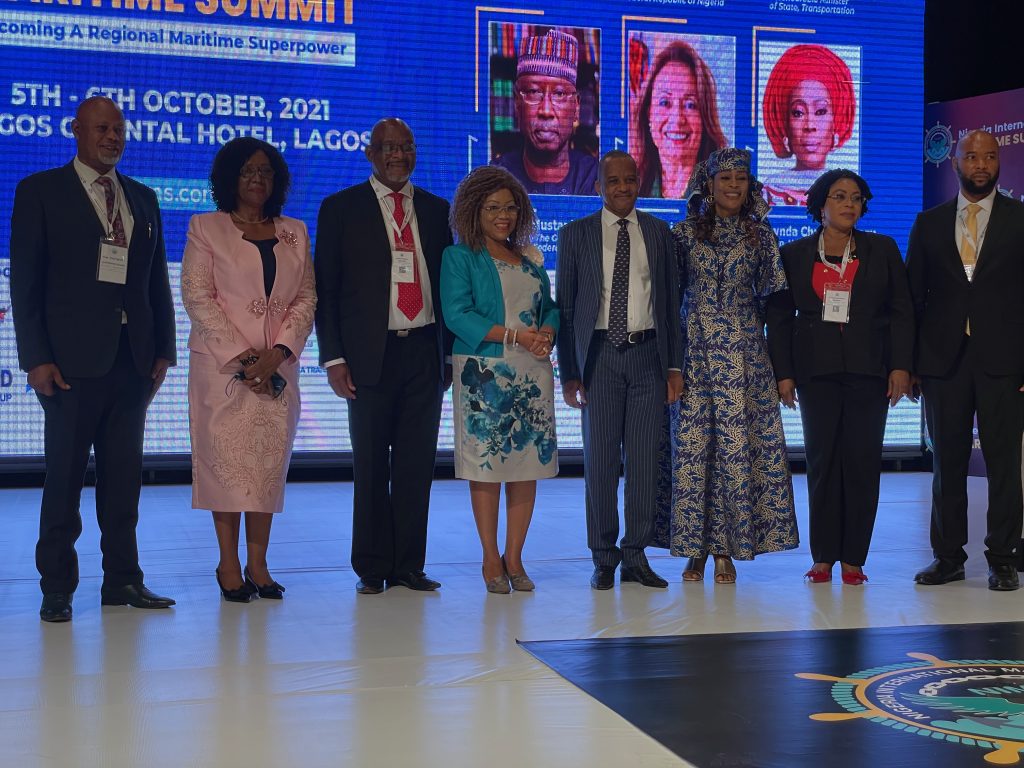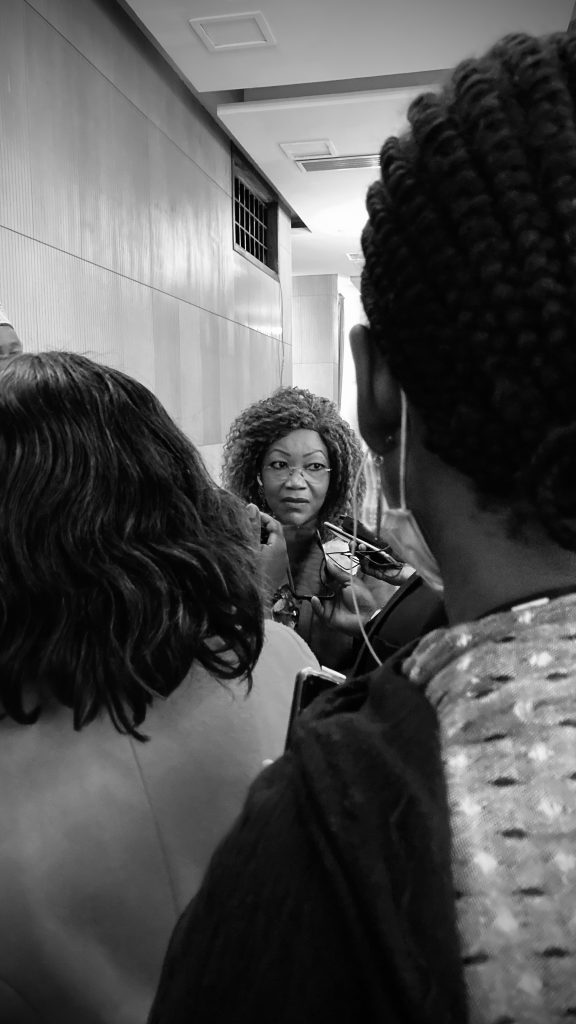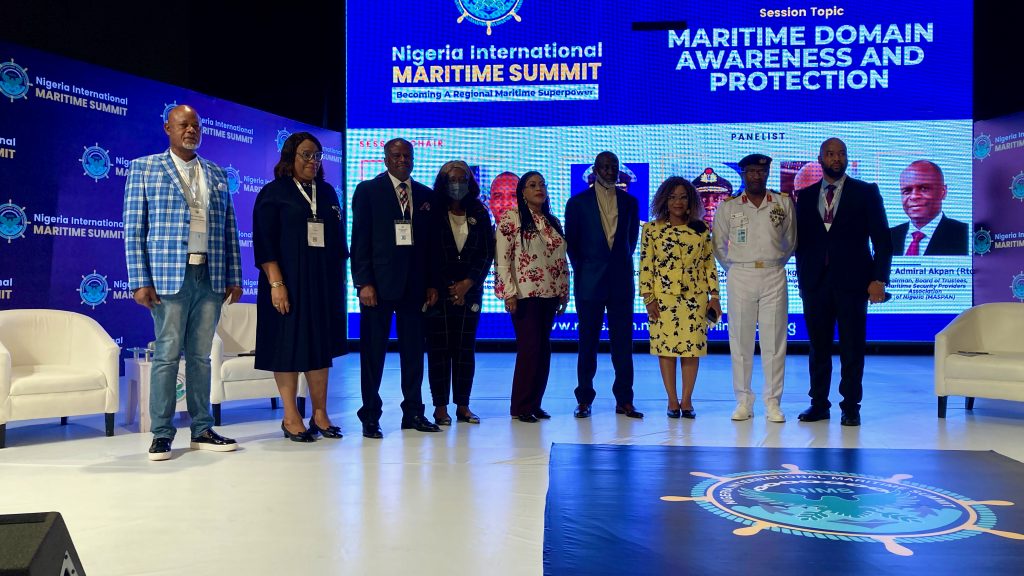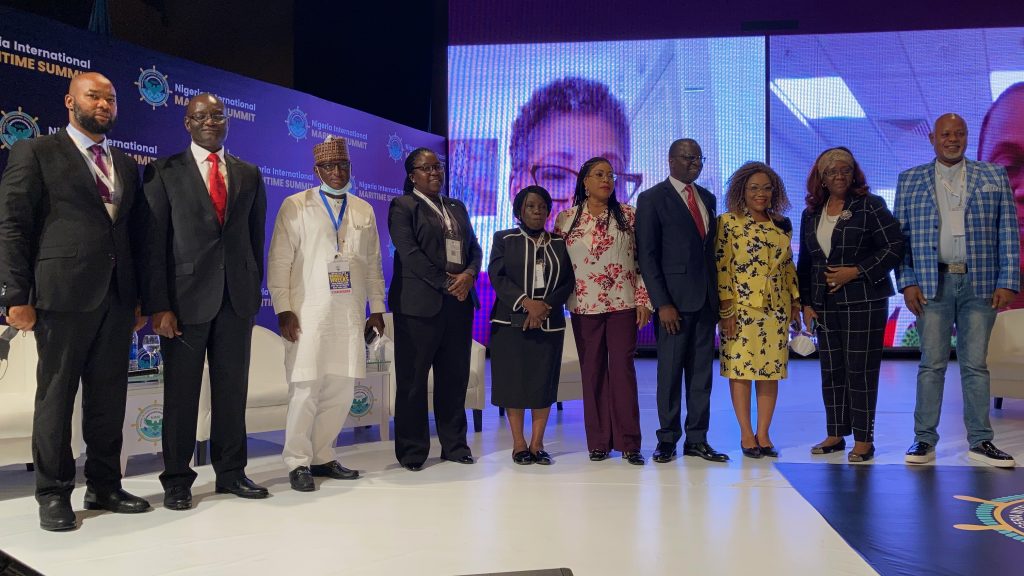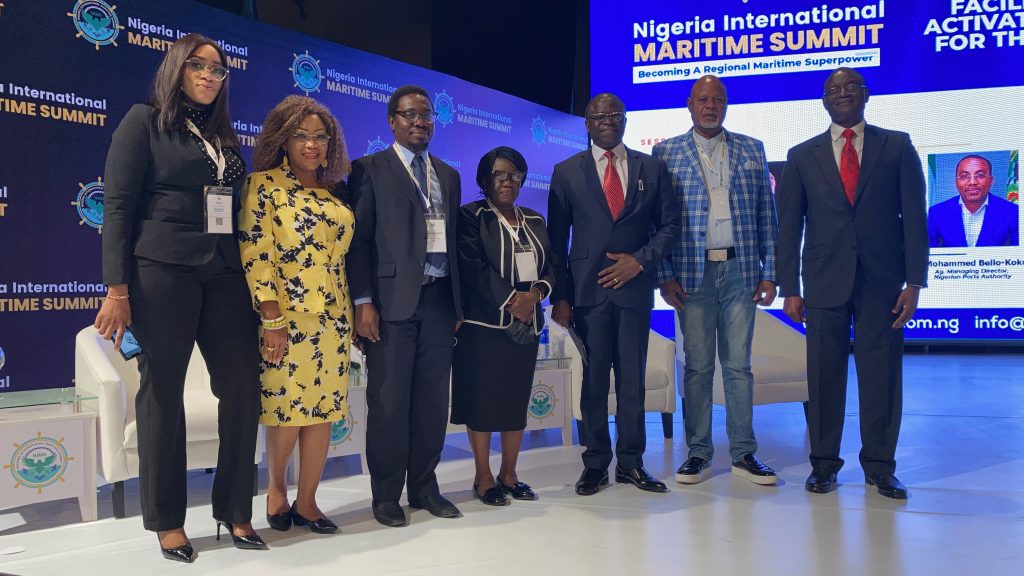NIGERIAN SHIPS FOR NIGERIAN WATERS: THE PROTECTIONIST POLICY OF THE CABOTAGE ACT VIS-A-VIS THE LIBERALISM OF THE AFRICAN CONTINENTAL FREE TRADE AGREEMENT (“AfCFTA”) – Gideon Edem[1]
INTRODUCTION
The potential of our Maritime sector is becoming a recurring revelation and needs no projection into the future but rather an immediate investment for immediate returns. Across the world, crude oil is increasingly being relegated and pressure is increasingly moving to cleaner alternatives, and renewables. The maritime sector offers a wide range of new business opportunities from clean energy to new modes of transportation, logistics and agriculture across almost all other sectors.
However, despite the potentials of this sector for the national economy and sovereignty, our maritime assets were not optimally harnessed as the sector was dominated by foreign companies, with significantly limited participation by domestic companies.
This has been attributed to the lack of financial and technical capacities of domestic companies, inadequate infrastructure, and ineffective implementation of local content policies, among other factors, which perpetuated the state of underdevelopment of local operators.
The Chairman, Lagos Deep Offshore Logistic (LADOL), Mr Ladi Jadesimi, at the 2019 Nigerian Shippers’ Council (NSC) Annual Stakeholders Appreciation Night, had noted that “The maritime industry holds the key to the sustainable economic development of Nigeria and whatever we do must be underpinned with strong local content – in today’s world that starts with Nigerians owning, engineering and building the ships we use.”[2]
It must have been for this reason that the Coastal and Inland Shipping (Cabotage) Act, 2003 was enacted to address the limited participation of domestic companies and enhance their participation in the maritime sector. The main objective of the Act is to give first priority to Nigerian shipping companies in domestic coastal trade and develop indigenous tonnage.
The Cabotage Act clearly gave priority to indigenous ships and strictly reserves the Nigerian waters for Nigerian ships.
While protectionism has been the Nigerian maritime dream, concerns broke out across Africa on the Pan African liberalism drive and this led to the ambitious trade pact to form the world’s largest free trade area by creating a single market for goods and services of almost 1.3bn people across Africa in order to deepen the economic integration of Africa; The African Continental Free Trade Area (AfCFTA) Agreement. This agreement and the impact therefrom could have a combined gross domestic product of around $3.4 trillion, but achieving its full potential depends on significant policy reforms and trade facilitation measures across African signatory nations.[3]
On the basis of Nigeria being a signatory to this trade pact, this article attempts to highlight the startling divergence (if any) between the Cabotage Act and the African Continental Free Trade Agreement with respect to the Nigerian waters and maritime assets.
TRADE PROTECTIONISM OF THE CABOTAGE ACT
It is no gainsaying that the Cabotage Act was enacted for trade protectionism. Trade protectionism is a policy that protects domestic industries from unfair foreign competition using tools such as tariffs, subsidies, quotas, and currency manipulation.
According to Mrs. Mfon Usoro in a paper presented at the International Maritime seminar for Judges in 2018,[4] the Cabotage Act was enacted in 2003 to inter alia promote the development of indigenous tonnage, and restrict the use of foreign vessels in cabotage. It defines cabotage to include the carriage of goods by vessel or any other mode of transport from one place in Nigeria or above Nigerian waters to any other place in Nigeria or above Nigerian waters.
Indeed, for a vessel to engage in cabotage on the inland waterways, it must be wholly owned and manned by Nigerian citizens; and must be built and registered in Nigeria.[5] To further maintain its strict protectionist disposition and to aid enforcement, the Act criminalises non-compliance with its provisions.
The only exceptions for participation of foreign vessel in the act[6] are instances where the vessel is engaged in a salvage operation,[7] engaged with the approval of the minister or any related government agency in activities of marine pollution emergency or any threatened risk,[8] engaged in any ocean research activity commissioned by the department of fisheries,[9] and operated or sponsored by a foreign government that has sought and received the consent of the Minister of Foreign affairs to conduct Marine Scientific Research[10]. A salvage operation in this section must be determined by the minister to be beyond the capacity of Nigerian owned and operated salvage vessels and companies.
While the Cabotage Act leaves some allowances for waivers[11] and licenses to foreign vessel,[12] the circumstances of these allowances are only activated if there are no domestic options.
The foundational issue of ship registration is also protected as a vessel shall not be registered or used in the domestic trade unless the minister is satisfied that[13]–
(a) the vessel is wholly and beneficially owned by Nigerian citizens or by a company wholly and beneficially owned by Nigerian citizens and a vessel or company is wholly and beneficially owned by Nigerian citizens where all the shares in the vessel and the company are held by Nigerian citizens free from any trust or obligation in favour of any person not a citizen of Nigeria;
(b) the vessel is on bareboat charter to Nigerian citizens and is under the full control and management of Nigerian citizens or a company wholly and beneficially owned by Nigerians;
(c) the vessel is owned by a company registered in Nigeria and the percentage of shares in the company owned by Nigerian citizens is not less than 60 per centum;
(d) any foreign vessel is licensed in compliance the Cabotage Act;
(e) the vessel is exclusively manned by officers and crew of Nigerian citizenship except with the minister’s waiver and
(f) the vessel possesses all certificates and documents in compliance with international and regional maritime conventions to which Nigeria is a party including all safety and pollution requirements imposed by a Nigerian law and any international convention in force.
From the foregoing, it is a requirement for registration for a vessel intending to participate in the domestic trade to be built by a company owned by Nigerian citizens or with the controlling interest vested in Nigerian citizens.[14]
The law determines instances where the controlling interest shall not be deemed to be vested in Nigerian Citizens, thus-
(i) if the title to a majority of the shares thereof or 60 per centum are not held by such citizens free from any trust or fiduciary obligation in favour of any person not a citizen of Nigeria; or Coastal and Inland Shipping
(ii) if the majority of the voting power in such company is not held by citizens of Nigeria; or
(iii) if through any contract or understanding it is so arranged that more than 40 per centum of the voting power may be exercised, directly or indirectly on behalf of any person who is not a citizen of Nigeria; or
(iv) if by any other means whatsoever control of any interest in the company in excess of 40 per centum is conferred upon or permitted to be exercised by any person who is not a citizen of Nigeria.
While Protectionism has its merits particularly with shielding a country’s new industries from foreign competition and temporarily creating jobs, it might also have a converse impact as companies have the tendency of decline without competition. The potential to outsource jobs and negatively impact economic growth are other demerits of protectionism.
A peek into other jurisdictions particularly, the Merchant Marine Act of 1920 otherwise called the “Jones Act” was signed into law on June 5, 1920, following a bill by Senator Jones, serving then as the chairman of the Senate Commerce Committee, to encourage greater commercial use of U.S. ships. Among the provisions in Jones’s legislation were requirements that ships eligible to transport goods from one U.S. port to another must be U.S.-flagged, U.S.-built, U.S.- owned, and crewed by U.S. citizens. Today, those provisions require that such ships be at least 75 percent U.S.-owned, at least 75 percent U.S.- crewed, and assembled entirely in the United States with all “major components of the hull and superstructure” fabricated domestically.[15] Many critics of the Jones Act describe it as a burden and a foe to America’s economy as “Higher shipping rates are the most obvious cost of the Jones Act, but they are merely the first in a cascade of adverse consequences unleashed by the law’s restrictions.”[16]
The discontent with America’s Jones Act begs the question if our Cabotage Act is a friend or foe and this should set the tone for the invitation of liberalism to our maritime trade.
THE LIBERALISM OF THE AFRICAN CONTINENTAL FREE TRADE AGREEMENT (“AFCFTA”)
In January 2012, fifty-four African countries agreed to establish the African Continental Free Trade Area (AfCFTA) during the 18th Ordinary Session of the Assembly of Heads of State and Government of the African Union (AU) in Addis Ababa, Ethiopia. The aim of this agreement was to create a single market for goods and services with ambitious long-term goals of deepening integration among AU member States, promoting the African Economic Community as envisaged in the 1991 Abuja Treaty of the Organisation of African Unity, and realising Africa’s Agenda 2063 to build a prosperous and united Africa.[17]
The AfCFTA envisages a borderless African Continental market as a step forward in reducing the cost of shipping in Africa in order to expand the intra-African trade from the traditional regional economic communities – where trade between African countries is currently domiciled – to the continental level to help diversify African economies and promote continental trade integration.[18] As a natural impact to this liberalisation, there could be an increase in containerised trade and port traffic volume as well as the need for cross-border maritime transportation between Nigeria and other African countries. One wonders what this will mean for Nigeria’s closed up maritime sector as the agreement and cabotage act seems at face value to be very distinct in objectives and totally opposed to each other.
THE MEETING POINT
While the AfCFTA might seek to liberalise trade among state parties, there have been an increasing conversation to support the position that any vessel that expects free and unlimited passage to trade in the African Continental Free Trade area needs to be flagged in an African State that is a party to the Agreement and in addition, hold 50 percent of its crew from a state party, or hold its equity shareholding in respect of the vessel in 50/50% equity from/with nationals of a state party
When placed side by side with the provisions of the Cabotage Act, it cannot be said that there is a contradiction as the requirements appear quite similar to those of the Cabotage Act in Nigeria which beyond protecting coastal shipping for indigenous operators has by way of waivers still left Cabotage trade open to foreign participation.
It is also suggested that the AfCFTA permits flagging, and foreign vessels take advantage to participate in Nigeria’s maritime trade using the mechanism of flags of convenience in a bid to attract the incentives bestowed on vessels plying the African waters by AfCFTA’s protocol on trade on goods.
CONCLUSION:
It is the opinion of the author that the protectionist policy of the Cabotage Act and the Liberalisation thrust of the African Continental Free Trade Area Agreement might seem divergent in principle but do not confront each other when tested in the practice of Nigeria’s maritime sector. While there may also be discontentment with the Jones Act of America, the author of this piece opines that Nigeria’s cabotage Act is more of a friend than a foe to Nigeria’s economy as it will prevent capital flight in the booming maritime sector.
As a recommendation, it is imperative for the Cabotage Vessel Financing Fund (CVFF) as created by section 44 of the Cabotage Act to be implemented religiously as that would increase the capacity of indigenous shipping companies and merchants to stay in the game to ensure that Nigerian waters are for Nigerian ships, and with the heightened capacity from this funding and the complementary support of ACFTA, Nigeria’s ships may lead in Africa’s waterways.
[1]Associate, Paul Usoro & Co., LL. B (University of Uyo) B.L(Bagauda, Kano)
[2] Sulaimon Salau, “Nigeria’s Huge Maritime Potential Remain Untapped” available at Nigeria’s huge maritime potential remain untapped | The Guardian Nigeria News – Nigeria and World News — Business — The Guardian Nigeria News – Nigeria and World News – accessed on 25 December 2019.
[3] David Thomas, “What you need to know about the African Continental Free Trade Area” available atWhat you need to know about the African Continental Free Trade Area – African Business accessed in February 2022
[4] Mfon Usoro “Liability Regime for Inland Carriage of Goods (Road, Rail and Inland Waterways)” paper presentation at Sheraton Hotel Abuja, July 2018
[5] Section 3-6 of the Cabotage Act
[6] Section 8 of the Cabotage Act
[7] Section 8(a) of the Cabotage Act
[8] Section 8(b) of the Cabotage Act
[9] Section 8(c) of the Cabotage Act
[11] Section 9-11 of the Cabotage Act
[12] Section 15-21 of the Cabotage Act
[13] Section 23(1) of the Cabotage Act
[14] Section 23(2) of the Cabotage Act
[15] C. Grabow, I. Manak & D. Ikenson, “The Jones Act – A Burden America Can No Longer Bear” available at The Jones Act: A Burden America Can No Longer Bear (cato.org) accessed on 16 August 2022
[16] ibid
[17] UNCTAD Research Paper No. 15, “African Continental Free Trade Area: Challenges and Opportunities of Tariff Reductions” available at African Continental Free Trade Area: Challenges and Opportunities of Tariff Reductions | UNCTAD accessed on 16 August 2022.
[18] The Maritime Executive, “What Will the African Continental Free Trade Area Mean for Shipping?” available on What Will the African Continental Free Trade Area Mean for Shipping? (maritime-executive.com) accessed on 16 August 2022.
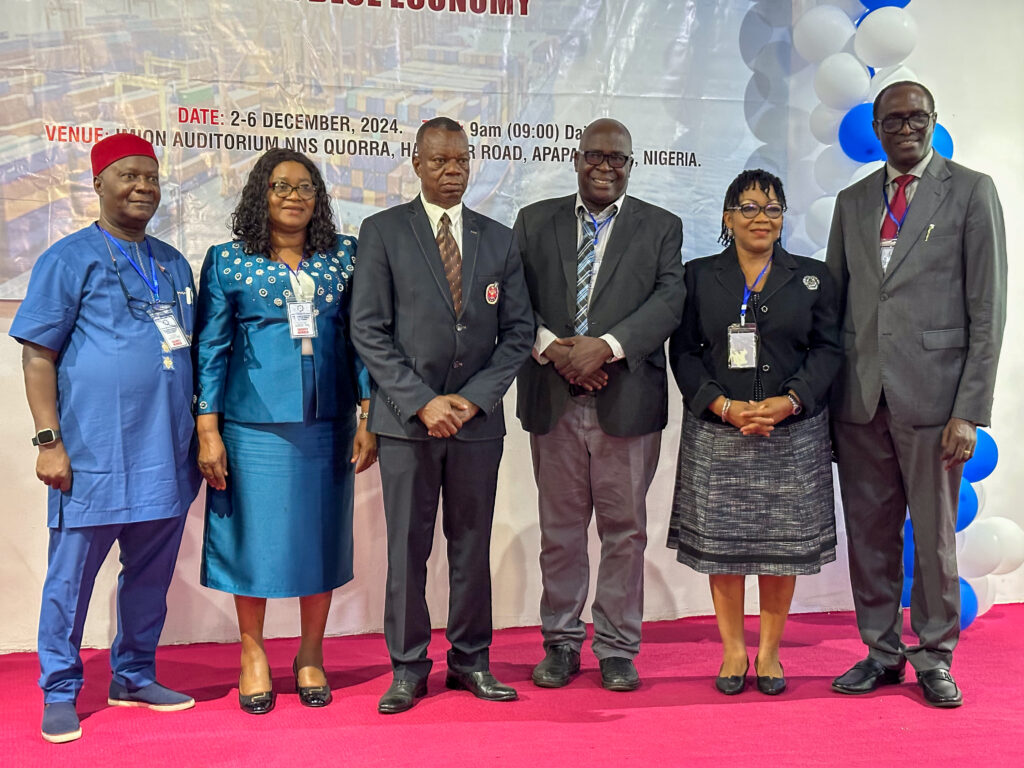
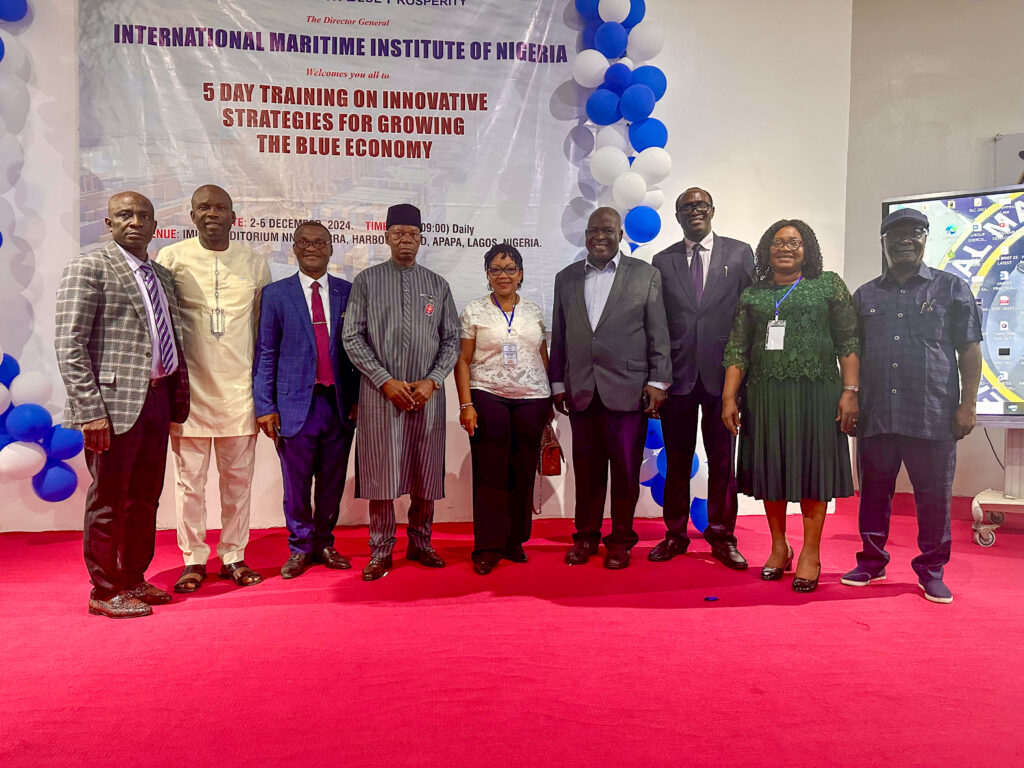 On 04 December 2024, these sessions highlighted “Technological Innovations in the Blue Economy,” with presentations by Prof. Iyiola Oni, Prof. Comfort Etok, and Associate Prof. Obugheni Arugu. This module showcased cutting-edge technologies driving the blue economy forward. Later, Prof. Freedom Onuoha led a session on “Stakeholder Engagement and Community Involvement,” emphasizing the importance of engaging local communities and stakeholders in blue economy initiatives.
On 04 December 2024, these sessions highlighted “Technological Innovations in the Blue Economy,” with presentations by Prof. Iyiola Oni, Prof. Comfort Etok, and Associate Prof. Obugheni Arugu. This module showcased cutting-edge technologies driving the blue economy forward. Later, Prof. Freedom Onuoha led a session on “Stakeholder Engagement and Community Involvement,” emphasizing the importance of engaging local communities and stakeholders in blue economy initiatives.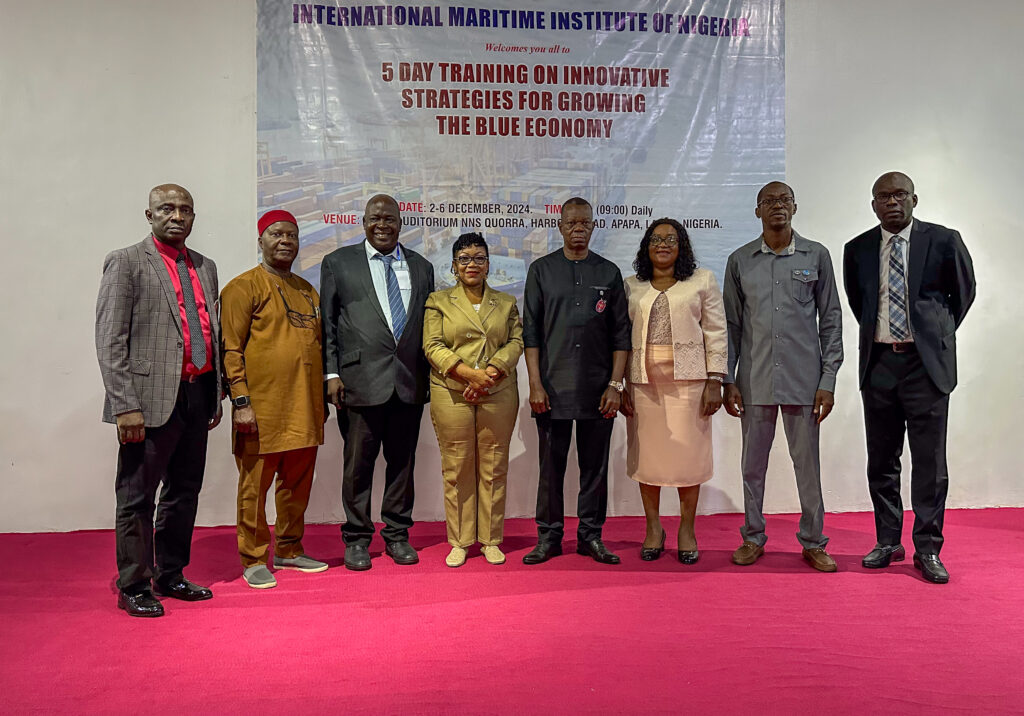
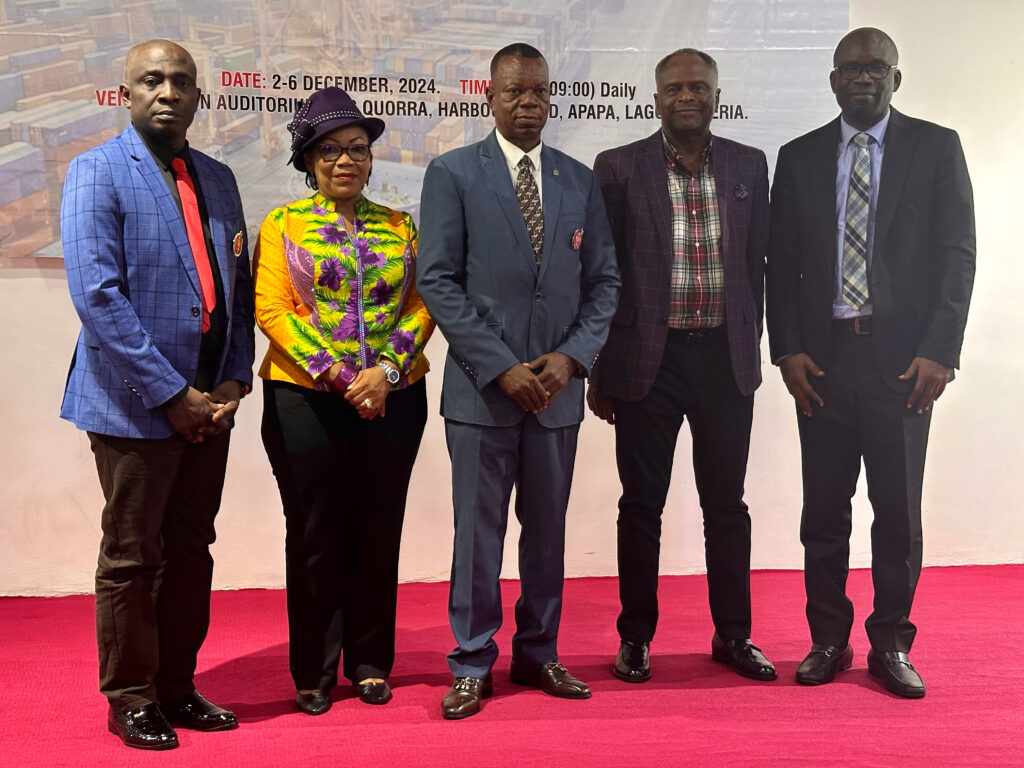
 The “Innovative Strategies for Growing the Blue Economy” course provided valuable insights and practical strategies for sustainable development. We are excited to apply the knowledge gained to our consulting work and contribute to the growth of the Institute.
The “Innovative Strategies for Growing the Blue Economy” course provided valuable insights and practical strategies for sustainable development. We are excited to apply the knowledge gained to our consulting work and contribute to the growth of the Institute.